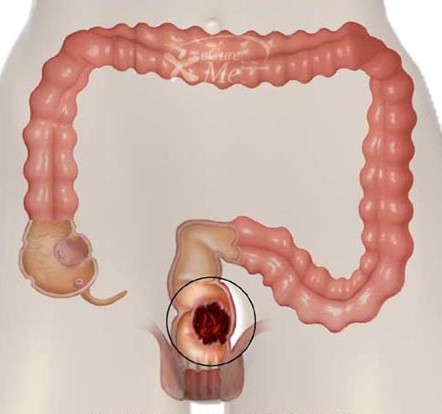| Before colorectal cancer surgery, you should understand the specific procedure planned, including its goals, risks, and potential complications. Discuss post-operative recovery expectations, such as pain management, dietary restrictions, bowel function changes, and potential need for ostomy care. Ensure you've cleared all medications and supplements with your surgical team, and have arranged for transportation and assistance at home post-surgery. Finally, openly communicate any concerns or questions with your doctor and support team to ensure you're fully informed and prepared.

Before colorectal cancer surgery, there are several crucial things you should know and do:
1. Understand Your Specific Procedure: Discuss the details of your surgery with your surgeon. This includes: - Type of surgery: This might be a laparoscopic (minimally invasive), robotic-assisted, or open surgery (larger incision). Understand the benefits and risks of each approach.
- Extent of surgery: Will it be a resection (removal of part of the colon or rectum), a colectomy (removal of the colon), a proctocolectomy (removal of the colon and rectum), or something else? Understand what parts of your intestines will be removed and how they will be rejoined.
- Stoma: Will you need a temporary or permanent colostomy or ileostomy (a surgically created opening in your abdomen to allow waste to pass into a bag)? If so, you'll need education on stoma care.
- Potential complications: Your surgeon should thoroughly explain the possible risks and complications of the surgery, such as infection, bleeding, nerve damage, and bowel obstruction.
2. Pre-Operative Preparations: Follow your surgeon's instructions meticulously regarding: - Dietary restrictions: You might need to follow a clear liquid diet or be on a bowel prep regimen (e.g., laxatives, enemas) to cleanse your bowels before surgery.
- Medications: Inform your surgeon of *all* medications, supplements, and herbal remedies you are taking. Some may need to be stopped before surgery.
- Smoking cessation: If you smoke, quit as soon as possible. Smoking significantly increases the risk of complications.
- Alcohol cessation: Avoid alcohol for a period before surgery as instructed by your doctor.
- Hygiene: Pay close attention to hygiene to minimize the risk of infection.
- Transportation: Arrange for someone to drive you home after surgery and assist you with post-operative care.
3. Questions to Ask Your Surgeon: - What are the goals of the surgery?
- What are the expected outcomes?
- What are the potential complications?
- How long will the surgery take?
- How long will my hospital stay be?
- What kind of pain relief will I receive?
- What will my recovery be like?
- What are the long-term implications of the surgery?
- What kind of follow-up care will I need?
- What should I expect in terms of bowel function after surgery?
- What kind of support groups or resources are available?
4. Prepare Your Home: - Stock up on easy-to-eat foods.
- Make your home accessible for someone recovering from surgery (e.g., removing rugs, placing frequently used items within easy reach).
- Arrange for help with household chores, errands, and childcare.
5. Emotional and Psychological Preparation: - Surgery is a significant event, and it's normal to feel anxious or scared. Don't hesitate to talk to your surgeon, your family, friends, or a therapist about your feelings.
- Consider joining a support group for people with colorectal cancer. This can provide valuable emotional support and practical advice.
By addressing these points, you can better prepare yourself physically and mentally for your colorectal cancer surgery and optimize your chances of a successful recovery. Remember to communicate openly and honestly with your healthcare team.
Tags: Colorectal Cancer 대장암  
|  1,253
1,253  0
0  0
0  3350
3350 